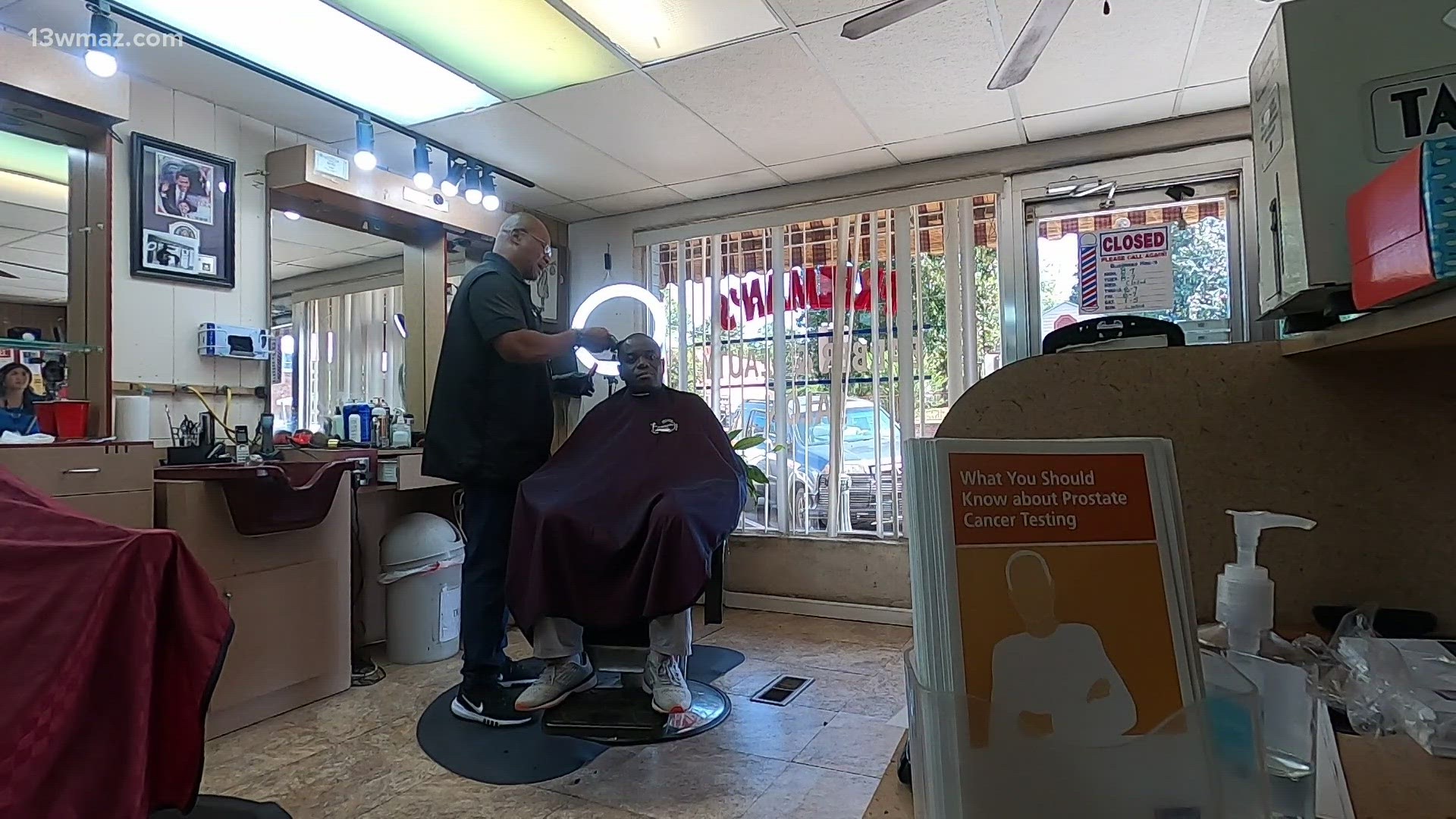MILLEDGEVILLE, Ga. — Lots of talk in a barbershop.
“We talk about anything from politics to personal problems,” said Freeman’s Barber Shop owner, Don Reese.
A new topic among the buzz of razors is…
“‘You had prostate cancer, man?’,” said Reese. “It shocked a lot of people."
Reese says he’s gone his whole life not knowing what prostate cancer was.
“I’m Superman, you know? I work out all the time, I've always been conscious of my health and what I ate,” he explained.
However, in 2016 after a routine prostate check-up and a biopsy…
“He [the doctor] said, ‘You know, you have cancer.’,” Reese said. “I didn't know who to talk to."
So, during treatment for Stage II prostate cancer, Reese just didn’t talk about it.
“I would go to the doctor, lay on the table, do my radiation, and I'd get something to eat. Then I’d come right back to the barbershop. Didn’t no one know anything about it."
Ernie Kaninjing says that's the problem.
He's a Public Health Associate Professor at Georgia College and State University.
He says prostate cancer is the most diagnosed cancer in men in the U.S. In 2020, around 19 men in 100,000 died of this cancer, but that number is doubled for black men.
“So my research really focuses on understanding the reasons driving these disparities,” Kaninjing explained.
He says part of it is the lack of healthcare access.
“Location. Being in a rural area makes it a little more difficult to travel to places where they can easily get care,” Kaninjing said.
The other part is a lack of social education and awareness.
“For some reason, it is not in the culture for black men to talk about preventative health,” he said.
Kaninjing says he's found there's a stigma for black men to ask questions about their health or even go to the doctor.
“It’s not within their culture to ask questions or even to seek second opinions. There had been cases where they were getting the diagnosis and not given a list of treatment options, and sometimes even just going with has been said to them the first time,” he explained. “When they do go into those visits perhaps they're not as better prepared to take ownership of their own health."
Kaninjing says his research is to find out when this is happening so they can intervene because this hereditary disease is perfectly curable.
“If found early, it has over a 97% survival rate, so it’s imperative that black men become more open to having conversations about this,” he explained. “We still face this issue of prostate cancer being a silent killer."
So, survivors like Reese are talking about it with his customers telling them to get checked out because there's no shame.
“I think there's a stigma about the prostate that men don’t like to talk about,” Reese said. “Guess what? I’d rather choose life over death.”
He says he’s only been talking about prostate cancer awareness for a couple of months, but he says it’s been working.
“Now, I have people coming here since I opened up talking to me more. I got stopped and he said, ‘Hey man, I got my prostate checked out.’”
Reese says it’s important to normalize the conversation and speak up to save a life.
“The test is painless, it’s just a needle in the arm and they check your PSA [prostate significant antigen] score. If you've been diagnosed with prostate cancer, that does not mean it's a death sentence. A buddy, a wife to support you, and don’t shy away from getting yourself checked, don't shy away from it,” Reese explained. “You don't have to wait until you start getting symptoms.
If you know someone who is struggling with prostate cancer and willing to share their experience, you can contact Professor Ernie Kaninjing at ernie.kaninjing@gcsu.edu.

